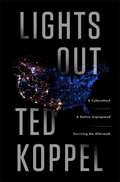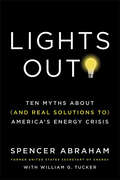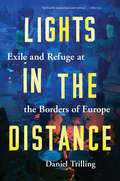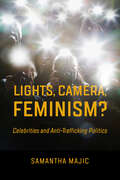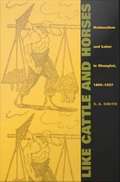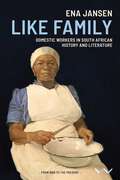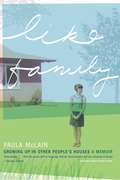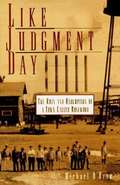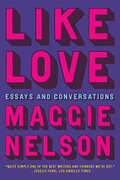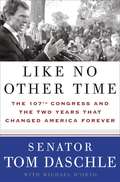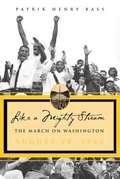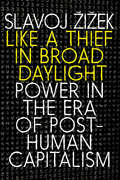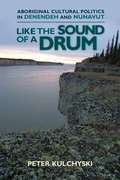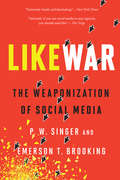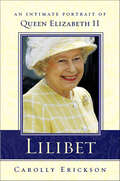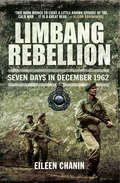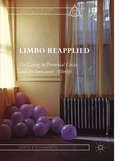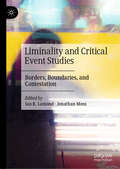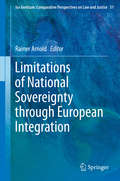- Table View
- List View
Lights Out
by Ted KoppelIn this tour de force of investigative reporting, Ted Koppel reveals that a major cyberattack on America's power grid is not only possible but likely, that it would be devastating, and that the United States is shockingly unprepared. Imagine a blackout lasting not days, but weeks or months. Tens of millions of people over several states are affected. For those without access to a generator, there is no running water, no sewage, no refrigeration or light. Food and medical supplies are dwindling. Devices we rely on have gone dark. Banks no longer function, looting is widespread, and law and order are being tested as never before. It isn't just a scenario. A well-designed attack on just one of the nation's three electric power grids could cripple much of our infrastructure--and in the age of cyberwarfare, a laptop has become the only necessary weapon. Several nations hostile to the United States could launch such an assault at any time. In fact, as a former chief scientist of the NSA reveals, China and Russia have already penetrated the grid. And a cybersecurity advisor to President Obama believes that independent actors--from "hacktivists" to terrorists--have the capability as well. "It's not a question of if," says Centcom Commander General Lloyd Austin, "it's a question of when." And yet, as Koppel makes clear, the federal government, while well prepared for natural disasters, has no plan for the aftermath of an attack on the power grid. The current Secretary of Homeland Security suggests keeping a battery-powered radio.In the absence of a government plan, some individuals and communities have taken matters into their own hands. Among the nation's estimated three million "preppers," we meet one whose doomsday retreat includes a newly excavated three-acre lake, stocked with fish, and a Wyoming homesteader so self-sufficient that he crafted the thousands of adobe bricks in his house by hand. We also see the unrivaled disaster preparedness of the Mormon church, with its enormous storehouses, high-tech dairies, orchards, and proprietary trucking company - the fruits of a long tradition of anticipating the worst. But how, Koppel asks, will ordinary civilians survive?With urgency and authority, one of our most renowned journalists examines a threat unique to our time and evaluates potential ways to prepare for a catastrophe that is all but inevitable.
Lights Out in the Reptile House: A Novel
by Jim ShepardA shy and apolitical herpetologist-in-training finds the weight of history bearing down on him as the effects of repression ramp up in his country In an unspecified country that combines elements of Chile under its military regime, South Africa under apartheid, and Italy under fascism, fifteen-year-old Karel Roeder asks only to be left alone to learn from Albert, his mentor at the zoo&’s reptile house, and to devote himself to his girlfriend, Leda. But both Leda and Albert lead him into increasingly proscribed areas of thought and speech, and thus into conflict with a newly ascendant party that intends to prosecute a border war against an officially despised ethnic group and criminalize dissent. Citizens have been disappearing and surveillance in the name of safety has become all-pervasive. When Kehr, a special assistant of the civil guard, billets himself at Karel&’s house for unknown reasons, Karel finds his already tenuous hold on his own innocence crushed as Kehr—tribune, inquisitor, and metaphysician of terror—instructs his unwilling protégé in those moments when history is let off the leash. Lights Out in the Reptile House is at once a dystopian political parable, a meditation on totalitarianism, and a moving coming-of-age story, as its protagonist struggles to understand his own values and meaning even in the most extreme of crucibles.
Lights Out: Islam, Free Speech and the Twilight of the West
by Mark Steyn"Free speech is the whole thing, the whole ball game. Free speech is life itself." Salman Rushdie said. Mark Steyn and McLane's, the premier Weekly News Magazine, were attacked by the Islamists using the human rights commissions of Canada. Mr. Steyn shows us how to defend free speech and what will too soon happen if we don't. Roaming from America to Europe to Australia, Lights Out is a trenchant examination of the tensions between a resurgent Islam and a fainthearted west - and of the implications for liberty in the years ahead. In 2007, the Canadian Islamic Congress brought three suits against Maclean s, Canada s biggest-selling newsweekly, for running an excerpt from Steyn s bestselling book America Alone, plus other flagrantly Islamophobic columns by the author. A year later the CIC had lost all its cases and Steyn had become a poster boy for a worldwide phenomenon - the collision between Islam, on the one hand, and, on the other, western notions of free speech, liberty and pluralism. In this book, Steyn republishes all the essays the western world's new thought police attempted to criminalize, along with new material responding to his accusers. Covering other crises from the Danish cartoons to the Salman Rushdie fatwa, he also takes a stand against the erosion of free speech, and the advance of a creeping totalitarian "multiculturalism"; and he considers the broader relationship between Islam and the west in a time of unprecedented demographic transformation.
Lights Out: Ten Myths About (and Real Solutions to) America's Energy Crisis
by Spencer Abraham William G. TuckerIn this timely book, former Secretary of Energy Spencer Abraham debunks the myths that warp our current debate over energy, and offers new solutions to the real problems we face in America. Drawing on the very latest thinking from experts in industry and academia, and his own experiences running America's Energy Department, he proposes a fresh approach to meeting our daunting energy threats. This book effectively answers how America and the world can overcome the challenges of rising global energy demand, geopolitical disruptions of the energy marketplace, and the environmental impact of producing and using energy. What emerges is a pragmatic energy strategy that calls for blending a variety of energy sources including nuclear, clean coal, solar, wind, and natural gas with a more determined effort at improving energy efficiency through the deployment of smart energy grids and buildings, to help meet our challenges while preserving our economy and environment. Coming in the midst of a national debate about global warming, energy dependence and rising energy prices and rich with anecdotes from the author's service in the Senate and cabinet, this book is a clarion call that will help shape our energy future.
Lights in the Distance: Exile and Refuge at the Borders of Europe
by Daniel TrillingImmersive, engrossing report on the European refugee crisisA mother puts her children into a refrigerator truck and asks, “What else could I do?” A runaway teenager comes of age on the streets, sleeping in abandoned buildings. A student leaves his war-ravaged country behind because he doesn’t want to kill. Everyone among the thousands of people who come to Europe in search of asylum each year possesses a unique story. But those stories don’t end as they cross into the West.In Lights in the Distance, acclaimed journalist Daniel Trilling draws on years of reporting to build a portrait of the refugee crisis as seen through the eyes of the people who experienced it firsthand. As the European Union has grown, so has a tangled and often violent system designed to filter out unwanted migrants. Visiting camps and hostels, sneaking into detention centers, and delving into his own family’s history of displacement, Trilling weaves together the stories of people he met and followed from country to country. In doing so, he shows that the terms commonly used to define them—“refugee” or “economic migrant,” “legal” or “illegal,” “deserving” or “undeserving”—fall woefully short of capturing the complex realities.The founding story of the EU is that it exists to ensure the horrors of the twentieth century are never repeated. Now, as it comes to terms with the worst refugee crisis since the Second World War, its declared values of freedom, tolerance and respect for human rights are being put to the test. Lights in the Distance is a uniquely powerful and illuminating exploration of the nature and human dimensions of the crisis.
Lights, Camera, Feminism?: Celebrities and Anti-trafficking Politics
by Prof. Samantha MajicCelebrities in the United States have drawn significant attention and resources to the complex issue of human trafficking—a subject of feminist concern—and they are often criticized for promoting sensationalized and simplistic understandings of the issue. In this comprehensive analysis of celebrities’ anti-trafficking activism, however, Samantha Majic finds that this phenomenon is more nuanced: even as some celebrities promote regressive issue narratives and carceral solutions, others use their platforms to elevate more diverse representations of human trafficking and feminist analyses of gender inequality. Lights, Camera, Feminism? thus argues that we should understand celebrities as multilevel political actors whose activism is shaped and mediated by a range of personal and contextual factors, with implications for feminist and democratic politics more broadly.
Like A Summer With A Thousand Julys
by Dave Wise Stuart WiseNow into their late 60's, and still working the buildings with the same London gang they've been with since the late 70's, key King Mob faces Dave and Stuart Wise have never stopped writing and agitating, and this, a companion volume to last years' warmly received 'King Mob: A Critical Hidden History', pulls together polemics, reflections, and righteous rants from the last 30 years. Opening up with 'Like A Summer With A 1000 July's' extensive, sideways look at the wave of urban insurrection that swept inner city UK in 1981; debunking punk's 'situationist myth' in 'The End Of Music', and a brief, but definitive look at the glorious 'King Mob/Father Xmas at Selfridges' prank of 1968. 'Nietzsche: Revolutionary' looks at the much revered/contested philosopher as "a reluctant communist", "proto ecologist" and "brother Hegelian. Separate chapters look back with affection and honesty at old friends, comrades and English Situationist founders Ralph Rumney and Alexander Trocchi respectively. Along the way, shards of surrealism cut through: the assault on art "in the great mod battle of Keswick", when "a travelling theatre was again torched," or the Dadaist guerrilla flavoured August '81 bank holiday attack when "the model railway station at Brighton was molotoved by white youths." And whilst an unwavering ideological perspective firmly rejects the stasis of the post war 'revolutionary left', just as it recoils in disgust at encroaching Neo Liberal barbarism, Dave Wise never shies away from reflecting on the personal, via the prism of the political : "Guy and Michele broke up around 1970.....everybody's relationship did, including my own; a break up...I never got over, and I've thought about my beloved Anne Ryder every day of my life since. These break-ups weren't about sexual difficulties or inadequacies nor about not being able to relate or even love, but finally about history and how the most profound revolt ever experienced failed so utterly, and the essential by-product of such failure was a psychosomatic pain so desperate it seemed in need of therapeutic treatment; a treatment simple warm cuddling and quiet affection couldn't match. We stormed and smashed open the gates of paradise to let in every exploited nutter who cared to join in... yet on the brink of utopia we were refused entry and where, just where, could you go from such a point of no return?"
Like Cattle and Horses: Nationalism and Labor in Shanghai, 1895-1927
by S. A. SmithIn Like Cattle and Horses Steve Smith connects the rise of Chinese nationalism to the growth of a Chinese working class. Moving from the late nineteenth century, when foreign companies first set up factories on Chinese soil, to 1927, when the labor movement created by the Chinese Communist Party was crushed by Chiang Kai-shek, Smith uses a host of documents--journalistic accounts of strikes, memoirs by former activists, police records--to argue that a nationalist movement fueled by the effects of foreign imperialism had a far greater hold on working-class identity than did class consciousness. While the massive wave of labor protest in the 1920s was principally an expression of militant nationalism rather than of class consciousness, Smith argues, elements of a precarious class identity were in turn forged by the very discourse of nationalism. By linking work-related demands to the defense of the nation, anti-imperialist nationalism legitimized participation in strikes and sensitized workers to the fact that they were worthy of better treatment as Chinese citizens. Smith shows how the workers' refusal to be treated "like cattle and horses" (a phrase frequently used by workers to describe their condition) came from a new but powerfully felt sense of dignity. In short, nationalism enabled workers to interpret the anger they felt at their unjust treatment in the workplace in political terms and to create a link between their position as workers and their position as members of an oppressed nation. By focusing on the role of the working class, Like Cattle and Horses is one of very few studies that examines nationalism "from below," acknowledging the powerful agency of nonelite forces in promoting national identity. Like Cattle and Horses will interest historians of labor, modern China, and nationalism, as well as those engaged in the study of revolutions and revolt.
Like Family: Domestic workers in South African history and literature
by Ena JansenAn analytic and historical perspective of literary texts to understand the position of domestic workers in South AfricaMore than a million black South African women are domestic workers. Precariously situated between urban and rural areas, rich and poor, white and black, these women are at once intimately connected and at a distant remove from the families they serve. Ena Jansen shows that domestic worker relations in South Africa were shaped by the institution of slavery, establishing social hierarchies and patterns of behavior that persist today. To support her argument, Jansen examines the representation of domestic workers in a diverse range of texts in English and Afrikaans. Authors include André Brink, JM Coetzee, Imraan Coovadia, Nadine Gordimer, Elsa Joubert, Antjie Krog, Sindiwe Magona, Kopano Matlwa, Es'kia Mphahlele, Sisonke Msimang, Zukiswa Wanner and Zoë Wicomb. Like Family is an updated version of the award-winning Soos familie (2015) and the highly-acclaimed 2016 Dutch translation, Bijna familie.
Like Family: Growing up in Other People's Houses
by Paula MclainIn the tradition of Jo Ann Beard's Boys of My Youth, and Mary Karr's The Liar's Club, Paula McLain has written a powerful and haunting memoir about the years she and her two sisters spent as foster children. In the early 70s, after being abandoned by both parents, the girls were made wards of the Fresno County, California court and spent the next 14 years-in a series of adoptive homes. The dislocations, confusions, and odd pleasures of an unrooted life form the basis of one of the freshest memoirs to be published in recent years. McLain's beautiful writing and limber voice capture the intense loneliness, sadness, and determination of a young girl both on her own and responsible, with her siblings, for staying together as a family.
Like Judgment Day: The Ruin and Redemption of a Town Called Rosewood
by Michael D'OrsoThe 1923 destruction of the town of Rosewood, Florida, is a shocking episode in the history of American race relations. In a week of terror that followed the alleged rape of a white woman, at least six residents of the mostly black town were murdered. The terrified survivors were chased into the swamps, and their houses, churches, and stores burned. For over 60 years, the former citizens of Rosewood lived quietly with their grief and fear. Finally, through the determined efforts of Rosewood descendants, persistent journalists, and talented lawyers, the long-buried story was brought to light.
Like Love: Essays And Conversations
by Maggie NelsonOne of the Globe and Mail's most anticipated books of 2024A career-spanning collection of inspiring, revelrous essays about art and artists.Like Love is a momentous, raucous collection of essays drawn from twenty years of Maggie Nelson&’s brilliant work. These profiles, reviews, remembrances, tributes, and critical essays, as well as several conversations with friends and idols, bring to life Nelson&’s passion for dialogue and dissent. The range of subjects is wide—from Prince to Carolee Schneemann to Matthew Barney to Lhasa de Sela to Kara Walker—but certain themes recur: intergenerational exchange; love and friendship; feminist and queer issues, especially as they shift over time; subversion, transgression, and perversity; the roles of the critic and of language in relation to visual and performance arts; forces that feed or impede certain bodies and creators; and the fruits and follies of a life spent devoted to making.Arranged chronologically, Like Love shows the writing, thinking, feeling, reading, looking, and conversing that occupied Nelson while writing iconic books such as Bluets and The Argonauts. As such, it is a portrait of a time, an anarchic party rich with wild guests, a window into Nelson&’s own development, and a testament to the profound sustenance offered by art and artists.
Like No Other Time: The 107th Congress and the Two Years That Changed America Forever
by Tom Daschle Michael D'OrsoTom Daschle, the Majority Leader of the historic 107th Senate, presents a candid insider’s account of the workings of the U.S. government during two of the most tumultuous years in the nation’s history.The 107th Congress faced a time like no other in the life of the nation. This was the era of the first presidential election to be decided by the United States Supreme Court, the fifty-fifty Senate, the horror of September 11, the anthrax attacks on media and the government (including Daschle’s own office), the war on terrorism, corporate scandals that shook the economy, the inexorable move toward war with Iraq, and other dramatic events, all leading up to the historic midterm elections of 2002.Through it all, Senator Tom Daschle had, with the exception of the President, the most privileged view of these unfolding developments, both in front of and behind the closed doors of government. In Like No Other Time, Daschle offers a riveting account of his singular perspective on a time when the nation faced deadly and elusive external enemies and a level of domestic political contention rarely seen in American history. Senator Daschle is un-flinching in his impressions of the key political figures of our time from both parties. The result is an acutely perceptive assessment of how our government met—and sometimes did not meet—the challenges of a remarkable era.As it was during the years of the 107th Congress, the United States is once again at a critical and historic crossroads. Our choices, based on what we have learned from our recent past, will affect our future in profound ways. For Senator Daschle, the first and perhaps most important choice lies with what kind of representation and leadership we want in government. It is a choice between a political party with a core philosophical belief in the power of our collective will to confront these challenges through our government, and one dominated by a group of people who don’t like and don’t believe in government.
Like a Holy Crusade: Mississippi 1964 -- The Turning of the Civil Rights Movement in America
by Nicolaus MillsA stirring and saddening account of the Mississippi Summer Project of 1964 and the turning of the civil rights movement in America. Mills recalls the triumphs of the episode but also shows how the quest for racial solidarity turned divisive and laid the foundations for the black power movement.
Like a Mighty Stream: The March on Washington, August 28, 1963
by Patrik Henry BassThe March on Washington for Jobs and Freedom, held in the nation's capital on August 28, 1963, is recognized as a watershed moment in American history. It was epochal; one of the most significant events of the 20th century. The New York Times called the March "the greatest assembly ever seen." No public event before or since has had the social, cultural or political impact of The March on Washington for Jobs and Freedom. ... This is a retrospective illumination of the events that led to the March. The book zeroes in on the leaders who made it happen, and explores the impact it had on the people who attended. ... Bass integrates the remembrances of everyday and extraordinary Americans who attended, including NPR correspondent Vertamae Grosvenor, Georgia representative Nan Grogan Orrock, and 60 Minutes correspondent Ed Bradley, Jr. Their memories of the day widely differ. Some recall the day as one of the hottest of their lives; others thought it was a mild summer day. There are varying accounts of how many people attended, and there are differences about the progress that was and has been made... Where they agree is that this was one of the greatest days in American history: an unparalleled celebration of humanity and hope.
Like a Thief in Broad Daylight: Power in the Era of Post-Human Capitalism
by Slavoj ZizekThe latest book from "the most despicable philosopher in the West" (New Republic) considers the new dangers and radical possibilities set in motion by advances in Big Tech.In recent years, techno-scientific progress has started to utterly transform our world--changing it almost beyond recognition. In this extraordinary new book, renowned philosopher Slavoj Žižek turns to look at the brave new world of Big Tech, revealing how, with each new wave of innovation, we find ourselves moving closer and closer to a bizarrely literal realization of Marx's prediction that "all that is solid melts into air." With the automation of work, the virtualization of money, the dissipation of class communities, and the rise of immaterial, intellectual labor, the global capitalist edifice is beginning to crumble, more quickly than ever before--and it is now on the verge of vanishing entirely.But what will come next? Against a backdrop of constant socio-technological upheaval, how could any kind of authentic change take place? In such a context, Žižek argues, there can be no great social triumph--because lasting revolution has already come into the scene, like a thief in broad daylight, stealing into sight right before our very eyes. What we must do now is wake up and see it. Urgent as ever, Like a Thief in Broad Daylight illuminates the new dangers as well as the radical possibilities thrown up by today's technological and scientific advances, and their electrifying implications for us all.
Like the Sound of a Drum: Aboriginal Cultural Politics in Denendeh and Nunavut
by Peter KulchyskiPart ethnography, part narrative, Like the Sound of a Drum is evocative, confrontational, and poetic. For many years, Peter Kulchyski has travelled to the north, where he has sat in on community meetings, interviewed elders and Aboriginal politicians, and participated in daily life. In Like the Sound of a Drum he looks as three northern communities — Fort Simpson and Fort Good Hope in Denendeh and Pangnirtung in Nunavut — and their strategies for maintaining their political and cultural independence. In the face of overwhelming odds, communities such as these have shown remarkable resources for creative resistance. In the process, they are changing the concept of democracy as it is practised in Canada.
LikeWar: The Weaponization of Social Media
by P. W. Singer Emerson T. BrookingTwo defense experts explore the collision of war, politics, and social media, where the most important battles are now only a click away. Through the weaponization of social media, the internet is changing war and politics, just as war and politics are changing the internet. <P><P>Terrorists livestream their attacks, “Twitter wars” produce real‑world casualties, and viral misinformation alters not just the result of battles, but the very fate of nations. The result is that war, tech, and politics have blurred into a new kind of battlespace that plays out on our smartphones. <P><P>P. W. Singer and Emerson Brooking tackle the mind‑bending questions that arise when war goes online and the online world goes to war. They explore how ISIS copies the Instagram tactics of Taylor Swift, a former World of Warcraft addict foils war crimes thousands of miles away, internet trolls shape elections, and China uses a smartphone app to police the thoughts of 1.4 billion citizens. <P><P>What can be kept secret in a world of networks? Does social media expose the truth or bury it? And what role do ordinary people now play in international conflicts? <P><P>Delving into the web’s darkest corners, we meet the unexpected warriors of social media, such as the rapper turned jihadist PR czar and the Russian hipsters who wage unceasing infowars against the West. Finally, looking to the crucial years ahead, LikeWar outlines a radical new paradigm for understanding and defending against the unprecedented threats of our networked world.
Lilibet: An Intimate Portrait of Elizabeth II
by Carolly EricksonWith her customary psychological insight, historian Erickson traces the queen's gilded but often thorny path from her overprotected girlhood to her ascension to the throne at twenty-five to her personal and national difficulties as queen.
Lilibet: An Intimate Portrait of Elizabeth II
by Carolly EricksonIn Lilibet, master biographer Carolly Erickson turns her skill at writing un-put-downable narrative to telling the remarkable story of Elizabeth II, Queen of England.With her customary psychological insight, historian Erickson traces the queen's gilded but often thorny path from her overprotected girlhood to her ascension to the throne at twenty-five to her personal and national difficulties as queen.Lilibet shows us an Elizabeth we thought we knew-but shows her in a different light: as a small, shy woman with a sly and at times raucous sense of humor, a woman who appears stiff in public, but in private enjoys watching wrestling on TV. A woman most at home among her horses and dogs. And a woman long annealed to heartbreak and sorrow, who has presided over the decline of Great Britain and the decline in prestige of her own Windsor dynasty.Far from being a light, gossipy treatment of a celebrity, Lilibet tells the queen's story from her point of view, letting the reader relive Elizabeth's long and eventful life with all its splendid ceremonies, momentous responsibilities and family clashes. Through it all we glimpse, as never before, the strong and appealing sovereign who has ruled over her people for half a century and more, a ruler of immense wealth, international esteem and high character whose daily life is grounded in the bedrock of common sense.
Limbang Rebellion: Seven Days in December 1962
by Eileen ChaninIn early December 1962 there was a surprise rebel uprising in northern Borneo. The leader of the anti-colonialist North Kalimantan National Army, Sheikh Azahari, mounted the insurrection that became known as the Brunei Revolt. It aimed to thwart Britain and Malaya's plan to combine the British territories of Borneo into a new Federation of Malaysia.The river town of Limbang, an administrative centre in the British colony of Sarawak, became the pivot of the rebellion that was to be the opening act of the military and diplomatic conflict known as 'Konfrontasi'.Combining eyewitness accounts with thorough research, Limbang Rebellion reveals what it was like to be thrown into this intense and unexpected conflict in which hostages were taken and threatened with execution. It describes the involvement of the Royal Marines under Captain Jeremy Moore, MC, and the daring rescue mission he led under challenging circumstances, which included being vastly outnumbered by the rebel forces. The result is a gripping account of seven dramatic days when a small town in northern Borneo suddenly seized the world's attention.
Limbo Reapplied: On Living in Perennial Crisis and the Immanent Afterlife (Radical Theologies and Philosophies)
by Kristof K.P. VanhoutteThe observation that our world is signed by a lasting crisis is as much underwritten as it is questioned. This book offers a new and provocative thesis by taking recourse to the religious discourse of Limbo, and by investigating the temporal and spatial structures of crisis and modernity. Modernity reveals itself to be the state of perennial crisis, and we all live in an immanentized state of Limbo.
Liminality and Critical Event Studies: Borders, Boundaries, and Contestation
by Ian R. Lamond Jonathan MossThis book explores and challenges the concept and experience of liminality as applied to critical perspectives in the study of events. It will be of interest to researchers in event studies, social and discursive psychology, cultural and political sociology, and social movement studies. In addition, it will provide interested general readers with new ways of thinking and reflecting on events. Contributing authors undertake a discussion of the borders, boundaries, and areas of contestation between the established social anthropological concept of liminality and the emerging field of critical event studies. By drawing these two perspectives closer together, the collection considers tensions and resonances between them, and uses those connections to enhance our understanding of both cultural and sporting events and offer fresh insight into events of activism, protest, and dissent.
Limitarianism: The Case Against Extreme Wealth
by Ingrid Robeyns"A powerful case for limitarianism—the idea that we should set a maximum on how much resources one individual can appropriate. A must-read!" —Thomas Piketty, bestselling author of Capital in the Twenty-First CenturyAn original, bold, and convincing argument for a cap on wealth by the philosopher who coined the term "limitarianism."How much money is too much? Is it ethical, and democratic, for an individual to amass a limitless amount of wealth, and then spend it however they choose? Many of us feel that the answer to that is no—but what can we do about it?Ingrid Robeyns has long written and argued for the principle she calls "limitarianism"—or the need to limit extreme wealth. This idea is gaining momentum in the mainstream – with calls to "tax the rich" and slogans like "every billionaire is a policy failure"—but what does it mean in practice?Robeyns explains the key reasons to support the case against extreme wealth: It keeps the poor poor and inequalities growingIt&’s often dirty moneyIt undermines democracyIt&’s one of the leading causes of climate changeNobody actually deserves to be a millionaireThere are better things to do with excess moneyThe rich will benefit, tooThis will be the first authoritative trade book to unpack the concept of a cap on wealth, where to draw the line, how to collect the excess and what to do with the money. In the process, Robeyns will ignite an urgent debate about wealth, one that calls into question the very forces we live by (capitalism and neoliberalism) and invites us to a radical reimagining of our world.
Limitations of National Sovereignty through European Integration
by Rainer ArnoldThe book considers the changes which national sovereignty has undergone through the supranational European integration. In various contributions by renowned academics and high judges demonstrate the serious impacts of supranationality on the EU member states and even on third countries which are connected with the EU by international treaties. It becomes clear that primacy of EU law, the most significant expression of supra-nationality, collides with national sovereignty as anchored in the national constitutions. The studies clearly show that most member states do not fully deny EU law primacy but are aware of the need to find an adequate balance between the supranational and the national orders. The result from the analyses of the authors from various European countries is that the upcoming constitutional paradigm is "constitutional identity", a concept established by jurisprudence in Germany, France, Czech Republic (without being named so) and debated also in Poland which, herself, denies supranational impact on the national Constitution entirely. Studies on selected EU member states clarify the specific national approaches towards the limitations of their sovereignty as developed by the constitutional jurisprudence (Poland, Czech Republic, Hungary, Romania, Italy, Germany with comparative references to United Kingdom and France). It is illuminated that traditionally strong sovereignty concepts (UK, France) are considerably relativized and functionally opened towards the integration challenges. Basic issues are furthermore reflected, such as the supranational impact on the State's power to reform its Constitution, the relation of national and constitutional identity and the national and supranational perspectives of identity. The book also includes Europe beyond the EU by research on the supranational character of association treaties (from a Ukrainian perspective) and on the Europeanization of a third country preparing EU membership (Albania).
